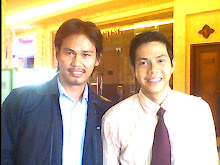Ubuntu Hacks: Exploring, Using, and Tuning the Popular Linux Distro
Sebastopol, CA--The first release of Ubuntu was made available to the world in October 2004. Less than two years later, Ubuntu is now the most popular Linux version at DistroWatch.com, far ahead of the distribution (or 'distro') in second place. Countless articles, reviews, and blog postings have been written about Ubuntu and its sister distros, Kubuntu and Edubuntu. In Macedonia, Ubuntu will be installed in 468 schools and 182 computer labs. In South Africa, HP plans to offer desktops and notebooks with Ubuntu on them.
Why has Ubuntu been so successful? According to Jonathan Oxer, Kyle Rankin, and Bill Childers, authors of the recently released Ubuntu Hacks (O'Reilly, US $29.99) there are both technical and ease-of-use reasons, "Technically, it's based on Debian, which is an excellent foundation for a Linux distro, but Ubuntu has added a level of finish and polish that has made it a joy to use for newbies, though it is still a powerhouse for more experienced users. It's incredibly up-to-date; a team of dedicated developers ensures that everything 'just works,' with regular updates to the various packages that make up the distro and roughly a six-month release schedule between distros."
Jonathon Oxer goes further, "For years people have been saying that Linux is at a tipping point--a moment in history when it ascends to the status of mainstream OS, but for years people have been disappointed as Linux stays marginalized on the desktop. Ubuntu is the distribution that more than any other has entered the consciousness of mainstream computer users as a serious and viable alternative to proprietary operating systems. It's a distribution you can confidently set up for your friends, your kids, your neighbors, and your workmates, knowing that they're less likely to cut themselves on sharp edges than they may have with other distributions in the past. It comes closer than any other distro so far to the 'just works' goal that we all strive for."
Kyle Rankin agrees, adding that he inadvertently became involved with Ubuntu when his wife switched over to it full-time after being a Windows user for many years. "I remember we had just purchased a new digital camera and she asked me how to use it under Ubuntu," Rankin recalls. "I thought back to all of the script-fu I had written in the past to automate importing images and shuddered, but knowing how Ubuntu treated hardware support, I told her, 'Hmm…well, let's just plug it in and see what happens.' Sure enough, Ubuntu detected the camera and brought up an import dialog--the whole process was even simpler than using the software that came with the camera under Windows."
The philosophy of the distribution is telling: the name Ubuntu itself is laden with meaning, as it is an African word meaning both "humanity to others" and "I am what I am because of who we all are," while Kubuntu means "towards humanity." Mark Shuttleworth (who started the Ubuntu project) has promulgated the Ubuntu Code of Conduct, which states that members of the community must practice consideration, respect, and collaboration.
The authors of Ubuntu Hacks echo that philosophy. This is a book written by passionate Ubuntu and Kubuntu users who are excited to talk about a powerful, cool distro that meets the needs of novice, intermediate, and experienced users in a wide variety of ways. The hacks in this book cover the essential areas of Ubuntu, and they'll help readers maximize their use of the distro. Whether you want to play music and movies, use Ubuntu on your laptop as you travel, install just about any software package you could ever want, or run other operating systems inside Ubuntu, this book has got it all covered. Among other topics, the book covers installing Ubuntu, using its powerful multimedia features, taking Ubuntu on the road with Wi-Fi, Bluetooth, and others, running Ubuntu with virtualization technology, Ubuntu system security, and setting up an Ubuntu-powered server.
Bill Childers sums it up, "The single most important thing that readers will be able to do is install, configure and get help for their new Ubuntu system. Rather than being left 'out in the cold' when things don't work as expected, our book will provide them with a roadmap on how to navigate the new open source waters they'll be exploring."




Tidak ada komentar:
Posting Komentar